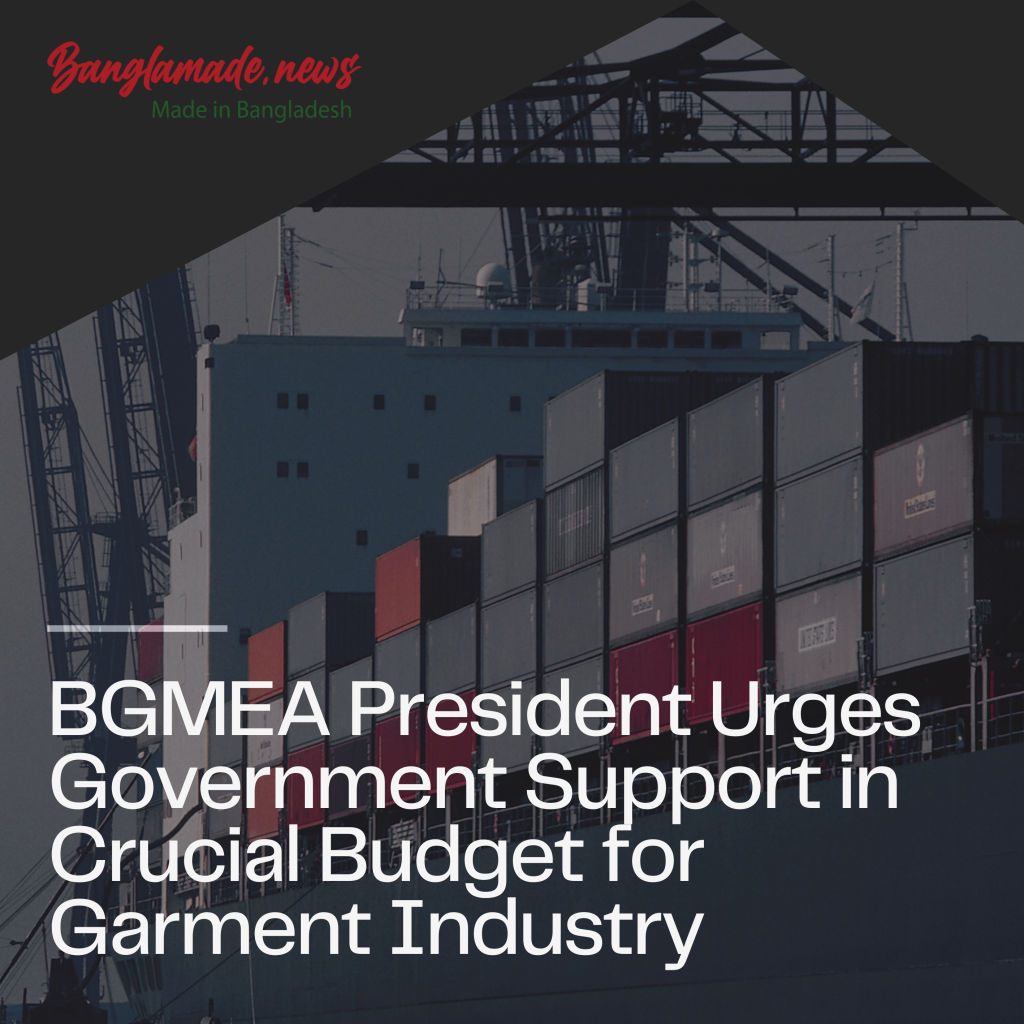
The President of the Bangladesh Garment Manufacturers and Exporters Association (BGMEA) has highlighted the significance of this year’s budget in addressing the challenges faced by the garment industry. The economic downturn, both globally and in Bangladesh, has led to a decline in reserves, from 48 billion to less than 30 billion over the past year. To alleviate the pressure on reserves, the industry aims to reduce imports of non-essential items and focus on sustaining exports.
The BGMEA President expressed concern over the reluctance of members and investors to make further investments due to the prevailing economic conditions worldwide. The combination of an election year and the current economic situation has made it challenging to retain the existing workforce, let alone create new jobs. Given these circumstances, the upcoming budget holds immense importance for the industry.
The main request from the BGMEA to the government is to provide support for the survival of the garment sector. While the government has stepped in during previous crises, such as the COVID-19 pandemic, the industry now finds itself in a position where the damage has reached a critical point. The rising prices of goods present a challenge in keeping daily commodity prices under control. The BGMEA suggests reducing the source tax, which has increased to 1 percent, back to 0.5 percent and fixing it for five years. Additionally, a 10 percent incentive to boost non-cotton exports would enhance competitiveness.
Regarding tax waivers, the BGMEA emphasizes the importance of recycling products in the industry. By recycling waste materials, such as jute, cut pieces, and rejected products, and transforming them into cotton or yarn, the industry can reduce imports and decrease costs. However, the imposition of a 15 percent VAT on these recyclable products hinders progress. The BGMEA advocates for a complete tax exemption on such items to stimulate production and increase exports.
Energy is a critical component of the garment industry, and the BGMEA calls for measures to make factories more energy-efficient and environmentally friendly. Due to inadequate gas and electricity supply, manufacturers have resorted to installing solar panels to generate their own electricity. The BGMEA urges the government to incentivize the use of renewable energy sources by removing all taxes on solar panels and related products.
Addressing the welfare of garment workers, the BGMEA proposes a separate initiative in the budget for the provision of subsidized essential commodities. Currently, workers face challenges in accessing these commodities due to their work schedules. The BGMEA suggests providing TCB (Trading Corporation of Bangladesh) products directly to factories, allowing them to purchase the items at a fair price and distribute them to workers. Furthermore, the BGMEA recommends separate working hours for garment workers and the issuance of dedicated cards to facilitate access to benefits.
In terms of training, the BGMEA emphasizes the need for a substantial allocation in the budget to establish training centers. Such centers would help create skilled manpower, leading to increased production and improved quality, ultimately boosting exports.
The upcoming budget holds great significance for the garment industry in Bangladesh. By addressing the industry’s concerns and implementing measures to support its growth, the government can contribute to the sector’s recovery and sustained success.
